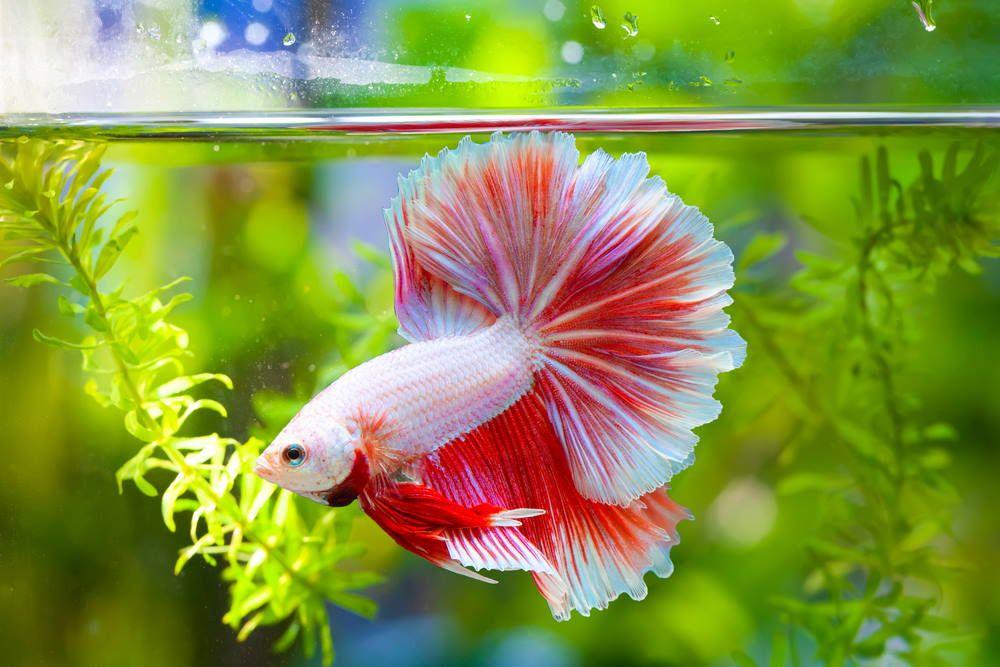If you’re searching for a pet that’s beautiful, low-maintenance, and full of personality, look no further than the betta fish. Known for their flowing fins and vibrant colors, bettas are one of the most popular freshwater fish among hobbyists and beginners alike. With the rise in interest in aquarium keeping, more people are on the lookout for betta fish for sale, but before you make a purchase, there are a few essential things to know to ensure you choose a healthy fish and provide it with the care it deserves.
In this guide, we’ll walk you through the world of bettas, including how to choose one, where to find betta for sale, and how to create the perfect home for your new aquatic friend.
What Makes Betta Fish So Popular?
Betta fish, also known as Betta splendens or Siamese fighting fish, are native to Southeast Asia. They were originally bred for their aggressive nature, especially among males, but over time, selective breeding led to the creation of hundreds of stunning varieties featuring unique tail shapes and color patterns.
Their beauty is undeniable—iridescent blues, fiery reds, elegant whites, and even multicolored varieties are now available. Add in their ability to survive in smaller tanks and their interactive nature (many bettas will even recognize their owners!), and it’s no surprise why bettas are a top choice for both novice and experienced fishkeepers.
Types of Betta Fish
When browsing betta fish for sale, you’ll quickly discover that there are many different types to choose from. Each type has its own distinctive appearance and appeal. Here are some of the most common varieties:
- Veiltail Betta: Long, flowing tail that droops downward.
- Crowntail Betta: Spiky, fringed fins that resemble a crown.
- Halfmoon Betta: A dramatic tail that forms a perfect 180° half-circle.
- Plakat Betta: A short-finned variety that resembles wild bettas; often more active.
- Double Tail Betta: Two tails split at the base, giving a fuller appearance.
- Dumbo or Elephant Ear Betta: Oversized pectoral fins that resemble elephant ears.
The right choice depends on your personal preference and your setup, but any of these can become a beautiful centerpiece in your aquarium.
Where to Find Betta Fish for Sale
Thanks to their popularity, bettas are widely available through various outlets. But not all sellers are equal, and it’s important to know where to find healthy, well-cared-for fish.
1. Pet Stores
Most chain pet stores carry a selection of bettas. While convenient, the quality and conditions can vary greatly. Always inspect the health of the fish and cleanliness of the tanks before buying.
2. Local Breeders
Purchasing from a local breeder can give you access to high-quality, well-cared-for bettas. Breeders often have rare or show-quality varieties that aren’t available in stores.
3. Online Retailers
Many reputable online fish stores and breeders ship across the country or even internationally. When searching online for betta fish for sale, look for sellers with high ratings, transparent photos of individual fish, and live arrival guarantees.
4. Aquarium Shows or Fish Conventions
If you want to see a wide selection of bettas and speak directly with breeders, aquarium expos are a great place to look for betta for sale and get expert advice.
What to Look for in a Healthy Betta
Once you’ve found a few sources for betta fish for sale, it’s time to evaluate the health and quality of the fish. Here’s what to look for:
- Bright, Consistent Color: Healthy bettas have vibrant and even coloring.
- Full, Intact Fins: Avoid fish with ragged, clamped, or torn fins.
- Active Behavior: Bettas should be swimming actively or exploring their tanks.
- Clear Eyes and Smooth Scales: No bulging eyes, white spots, or signs of disease.
- No Signs of Labored Breathing: Gills should move gently and steadily.
If buying online, always check if the seller provides a recent, unedited photo of the exact fish you’ll receive, rather than a stock image.
Setting Up the Perfect Betta Tank
Bringing home your betta is just the first step. Providing the right environment is key to keeping them healthy and stress-free.
Tank Size
While bettas are often kept in small bowls, this is not ideal. A 5-gallon tank is the minimum recommended size. Bettas thrive with more space to swim and explore.
Water Parameters
- Temperature: 76–82°F (24–28°C)
- pH Level: 6.5–7.5
- Filtration: Bettas do best with gentle filtration to keep the water clean without strong currents.
Enrichment
Bettas are intelligent and curious. Add live or silk plants, caves, and hiding spots to make the environment interesting. Floating logs and leaf hammocks are great additions too.
Feeding Your Betta
Bettas are carnivorous and need a high-protein diet. Feed high-quality betta pellets or flakes, and occasionally treat them to live or frozen foods like brine shrimp or bloodworms. Feed once or twice daily, only what they can consume in 2–3 minutes to avoid overfeeding.
Can Bettas Have Tankmates?
This is a common question. Male bettas are highly territorial and are best kept alone. However, with careful planning, they can live with peaceful species like:
- Mystery snails
- Ghost shrimp
- Small schooling fish like ember tetras or cory catfish (in larger tanks)
Never house two male bettas together, and always monitor interactions with any tankmates closely.
Common Betta Health Issues
Bettas are hardy, but they can still suffer from diseases, especially in poor conditions. Common issues include:
- Fin Rot: Caused by dirty water or injuries; treatable with clean water and medication.
- Ich (White Spot Disease): Parasitic infection; treat with aquarium salt or specialized medication.
- Swim Bladder Disease: Causes erratic swimming; often related to overfeeding or constipation.
Regular maintenance, good diet, and a stress-free environment go a long way in preventing these issues.
Final Thoughts: Why Bettas Are a Great Choice
If you’re searching online for betta fish for sale or walking past tanks of betta for sale in your local pet shop, it’s easy to see why these little fish capture so many hearts. Their dazzling colors, manageable care requirements, and feisty yet friendly personalities make them ideal for beginners and experienced fish lovers alike.
Before buying, take the time to research, choose a healthy fish, and create the right setup. With just a little care, your betta can live a long, vibrant life—often up to 3–5 years or more in ideal conditions.
So whether you’re upgrading your aquarium or bringing home your first fish, finding the right betta for sale is just the beginning of a rewarding, peaceful journey into fishkeeping.

